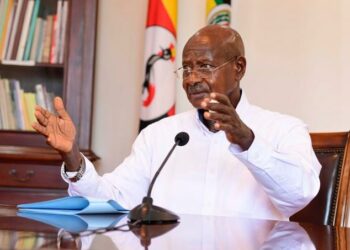The Africa Continental Free Trade Area, which came into effect on 1st January, 2021, has enormous opportunities awaiting farmers, and Small and Medium Entrepreneurs (SMEs).
The African Continental Free Trade Area (AfCFTA) agreement is a free trade area founded by African Union in 2018, in 54 countries of the 55 AU nations.
The milestone achieved under the chair of South Africa’s Cyril Ramaphosa, is expected to boost trade by connecting a market of 1.3 billion people living in Africa.

The continental free trade zone, with a combined gross domestic product (GDP), according to the World Bank is estimated at $ 3.4 trillion with potential to lift 30 million people from extreme poverty.
The doubt however remains on how this good AfCFTA will be implemented to achieve its targets.
The Country Manager, Human Capital International Uganda Shenina Aheebwa, has tipped farmers and SMEs locally (Uganda) on how to take advantage of the free trade area.
She was speaking on the side-lines of the Strategic Leaders’ Summit 2021 on Thursday in Kampala, which focused on opportunities for farmers and SMEs by the AfCFTA.
Knowledge acquisition:
Ms Shenina said that people need to equip themselves with knowledge on the free trade area and what goods are exempted from tariffs in the participating countries.
She also underscored the need for more sensitization by all the relevant players and nations.
Drop Subsistence Farming:
Shenina said that this is a must do, urging farmers to go commercial if they want to benefit from the huge market from 54 participating countries.
Digitalization:
Since technology in agribusiness has become a reality, she says that farmers can’t do without.
The emerging technology, she said, enhances yields and reduces losses in hard times, citing the recent impacts of COVID-19 to the sector.
Shenina also underscored the need, among other things, to maintain quality in order for Uganda’s local goods and services to compete in other participating countries.
The Strategic Leaders’ Summit 2021 attracted business personalities from across Africa, some of whom participated virtually.
Malisa Nyakwera, the Head of the Head of Agri-Business at Stanbic Bank Uganda also cited challenges that the sector is likely to face as they struggle to compete in the Africa Free Trade Area.
She has underlined limited access to funding, which will keep famers and SME’s struggling despite the available large market.
She urged government and financial institutions to develop policies, for easy access to funds, the agribusiness to flourish.
In Uganda agriculture employs 65% of the people, and Shs 1.16 is earned, contributing 23% to the GDP.
‘To me there I disconnect with these figures, it means that if we invest more in the sector we can do better’, Nyakwera said.
She also gave out figures on mobile phone penetration, at 27 million subscribers representing 63% expressing optimism that if well utilised by farmers can improve access to information and be a marketing tool.
‘We need to have proper data, we may not have many people in farming, but we should be able to know how much they acreage and the out-put for those few have’, She added.
Dr. Okaka Geofrey Owich, the Assistant Commissioner Uganda Revenue Authority, revealed that in the near future an African Customs Union will be developed, for proper management of the AfCFTA.
Currently the African Continental Free Trade Area, is the largest common market in the world, which everyone is looking forward to witnessing.
One of the threats is similar to that faced in the EAC common market, where some goods from particular countries have been blocked in other countries.
Do you have a story in your community or an opinion to share with us: Email us at editorial@watchdoguganda.com













